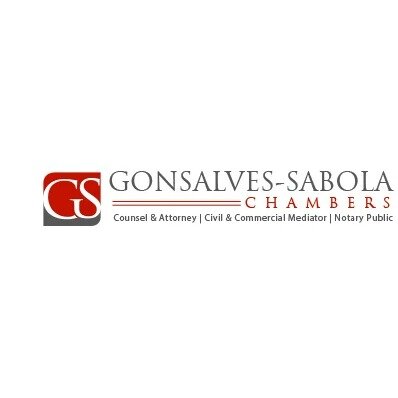Best Banking & Finance Lawyers in Bahamas
Share your needs with us, get contacted by law firms.
Free. Takes 2 min.
Or refine your search by selecting a city:
List of the best lawyers in Bahamas
About Banking & Finance Law in Bahamas
The Bahamas is renowned for its robust financial services sector, which is a significant pillar of its economy. Banking and Finance law in the Bahamas covers a wide range of regulations and legislation that govern the operations of financial institutions and the execution of financial transactions. With a jurisdiction underpinned by common law, the Bahamas offers a stable and favorable legal environment for banking and finance activities. The regulatory framework is designed to ensure financial stability, consumer protection, and compliance with international standards, which makes the Bahamas an attractive hub for international banking and finance services.
Why You May Need a Lawyer
There are several scenarios where seeking legal advice in banking and finance may be necessary:
- Establishing a Bank or Financial Institution: Legal assistance is crucial to navigate the regulatory requirements and obtain necessary licenses.
- Financial Transactions: Whether engaging in cross-border transactions, lending, or borrowing, a lawyer can help ensure compliance and protect your interests.
- Debt Recovery: Lawyers can assist in the enforcement of debts and recovery procedures.
- Regulatory Compliance: Financial institutions need to adhere to Anti-Money Laundering (AML) and other regulatory protocols, which require expert legal guidance.
- Litigation and Dispute Resolution: Legal disputes in banking and finance require specialists with knowledge of local laws and international practices.
Local Laws Overview
The Bahamas has a comprehensive legal framework governing the banking and finance sector. Key aspects include:
- Central Bank of The Bahamas Act: Establishes the Central Bank as the primary regulator of financial institutions.
- Financial Transactions Reporting Act (FTRA): Enforces principles for maintaining customer due diligence and reporting to prevent money laundering.
- Securities Industry Act: Regulates the securities market and protects investor interests.
- Bank and Trust Companies Regulation Act: Provides for the regulation and supervision of banks and trust companies.
- International Business Companies (IBC) Act: Facilitates international business operations within the financial services sector.
Frequently Asked Questions
1. How do I set up a bank in the Bahamas?
Setting up a bank in the Bahamas requires a license from the Central Bank, compliance with rigorous financial standards, and legal assistance throughout the application process.
2. What is the regulatory body for banking in the Bahamas?
The Central Bank of the Bahamas is the primary regulator overseeing banks and financial services providers operating in the country.
3. Are there specific laws for anti-money laundering?
Yes, the Financial Transactions Reporting Act (FTRA) outlines measures and regulations to combat money laundering and terrorist financing in the Bahamas.
4. How are international business companies regulated?
International Business Companies (IBCs) are regulated under the IBC Act, which offers favorable conditions for foreign investors and businesses.
5. What should I consider when involved in cross-border financing?
Legal guidance is critical in navigating regulatory compliance, tax implications, and contractual obligations in cross-border financing transactions.
6. How does the Bahamas handle banking disputes?
Banking disputes are typically settled through negotiation, arbitration, or litigation, depending on the nature of the dispute.
7. What rights do consumers have in the banking sector?
Consumers enjoy rights related to transparent communication, fair treatment, and protection of personal financial information against fraud and unauthorized access.
8. Do I need legal representation for financial transactions?
While not always mandatory, legal representation is advisable to ensure that transactions comply with local laws and are in the client's best interest.
9. Can foreign nationals open bank accounts in the Bahamas?
Foreign nationals can open bank accounts, but they must comply with due diligence and KYC (Know Your Customer) regulations.
10. What are trust companies, and how are they regulated?
Trust companies manage assets for clients, requiring licensing and regulation under the Bank and Trust Companies Regulation Act.
Additional Resources
For further assistance, consider contacting the following resources:
- Central Bank of the Bahamas: The main regulatory body for banks and finance institutions.
- Securities Commission of the Bahamas: Oversees the securities and capital markets.
- The Bahamas Financial Services Board: Provides advocacy and support for the financial services sector.
- Bahamas Bar Association: Offers a directory of qualified legal professionals specializing in banking and finance.
Next Steps
If you require legal assistance in the field of banking and finance in the Bahamas, consider the following steps:
- Identify Your Legal Needs: Determine the specific legal issue or service you need assistance with.
- Research and Select a Lawyer: Look for lawyers with expertise in banking and finance law, preferably with a track record in the Bahamas.
- Consultations: Schedule consultations to discuss your case or needs, understand their approach, and evaluate their recommendations.
- Review and Understand Fees: Ensure you understand the fee structure and any additional costs involved before engaging legal services.
- Documentation: Prepare and organize necessary documentation relevant to your legal issue for efficient processing.
Lawzana helps you find the best lawyers and law firms in Bahamas through a curated and pre-screened list of qualified legal professionals. Our platform offers rankings and detailed profiles of attorneys and law firms, allowing you to compare based on practice areas, including Banking & Finance, experience, and client feedback.
Each profile includes a description of the firm's areas of practice, client reviews, team members and partners, year of establishment, spoken languages, office locations, contact information, social media presence, and any published articles or resources. Most firms on our platform speak English and are experienced in both local and international legal matters.
Get a quote from top-rated law firms in Bahamas — quickly, securely, and without unnecessary hassle.
Disclaimer:
The information provided on this page is for general informational purposes only and does not constitute legal advice. While we strive to ensure the accuracy and relevance of the content, legal information may change over time, and interpretations of the law can vary. You should always consult with a qualified legal professional for advice specific to your situation.
We disclaim all liability for actions taken or not taken based on the content of this page. If you believe any information is incorrect or outdated, please contact us, and we will review and update it where appropriate.
Browse banking & finance law firms by service in Bahamas
Bahamas Attorneys in related practice areas.
Browse banking & finance law firms by city in Bahamas
Refine your search by selecting a city.

















